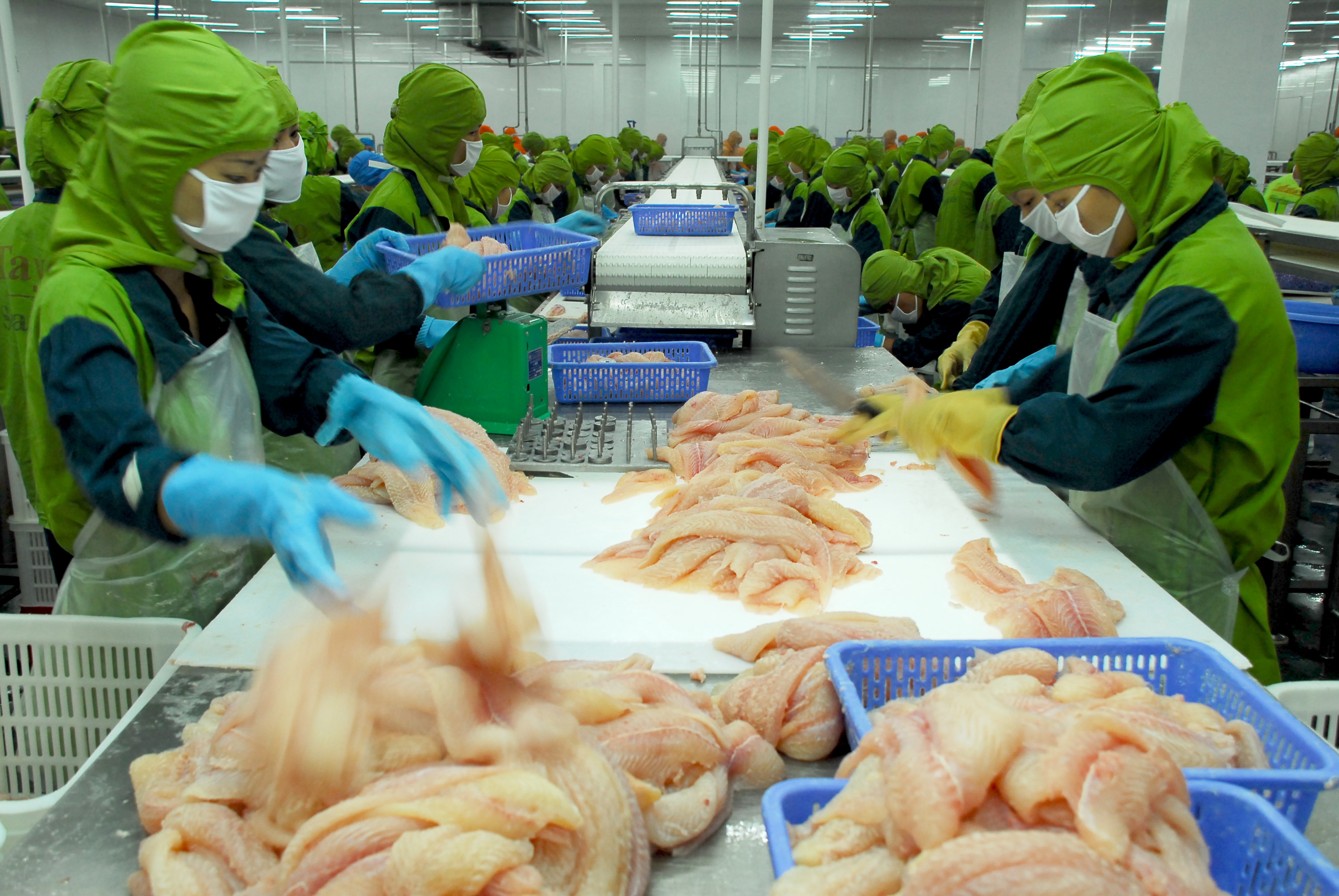The Vietnam Association of Seafood Exporters and Producers (VASEP) has once again raised its voice against the US Department of Commerce’s (DOC) decision to impose anti-dumping taxes on Vietnamese pangasius exporters after the 9th administrative review (POR9).
VASEP has also asked DOC to keep Bangladesh as the country of reference, instead of Indonesia, for the calculation of input costs of Vietnamese pangasius products like it did in the past.
According to DOC's preliminary decision released on Wednesday, the taxes will be imposed on any Vietnamese pangasius exporters sending their fillet products to the US between August 1, 2011 and July 31, 2012.
Under the decision, the duties on products of Vinh Hoan and Hung Vuong, two mandatory reviewed companies, will be $0.42 per kg and $2.15 per kg, respectively. The rates for other voluntary companies will be $0.99 per kg and $2.11 per kg for the rest.
VASEP took the same move early July, stating that it will continue to pursue justice against such an irrelevant and unreasonable tax rates for the sake of Vietnam pangasius industry.
“VASEP and Vietnamese catfish exporters are implementing measures to protect its catfish industry through necessary legal activities to request DOC to change its final decision of the POR8 under the laws of the US as well as the agreement of the World Trade Organization,” said Nguyen Hoai Nam, Deputy general secretary of VASEP.
VASEP also expressed great discontent as DOC had suddenly changed the country of reference, thereby making anti-dumping duty imposed on Vietnam catfish surged.
“In the previous administrative review, DOC had repeatedly protested the choice of Indonesia as the third country for reference to calculate the input costs of the catfish production because this country does not have adequate data on prices and lack of basic financial parameters,” said VASEP.
Moreover, Indonesia is a net importer of frozen catfish fillets, mainly from Vietnam, and exports no catfish for the world market. However, now the country of reference is Indonesia.
Previously, DOC always chose Bangladesh as the reference for eight consecutive years in the past to calculate the input costs of the Vietnamese catfish industry.
“Bangladesh also produces commercial hypophthalmus, a kind of pangasius, and breeds them in ponds like Viet Nam, and production costs and revenue from pangasius in Vietnam and Bangladesh are nearly the same,” according to the Vietnam News Agency (VNA).
“As a result, there is no reason for Indonesia to become the proxy country, nor its data more reliable to be the basis for the preliminary decision of the POR9 as well as the final decision of POR8,” the VNA quoted VASEP reprehensive as saying.
Early last month, VASEP voiced against voiced its protest against the latest decision on the imposition of anti-subsidy duties on Vietnamese shrimp exporters from the DOC.
“Such a decision is unfair to local shrimp processors and exporters as they are operating under market mechanisms, and have never received any government’s subsidy or any other kinds of subsidies.
This decision also means that the US has levied two kinds of taxes on the same product, the import tariff and the anti-subsidy duty, thereby directly affecting the livelihoods of 600,000 Vietnamese farmers and many others working in related fields, including workers and businesses.


















































